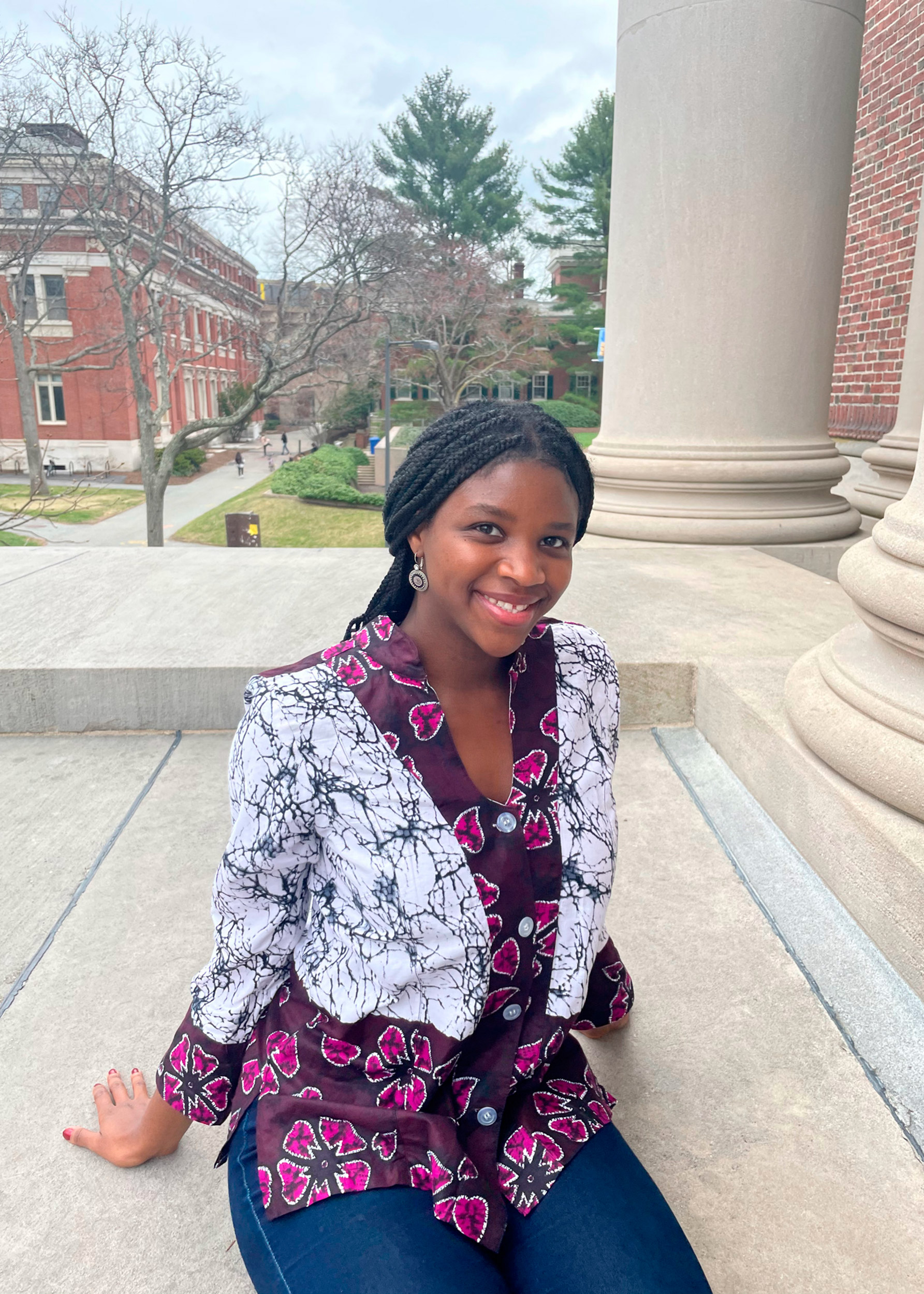Engineering change
Juliet Nwagwu Ume-Ezeoke ’21 is one degree closer to improving Africa’s infrastructure

Courtesy photo
This is one in a series of profiles showcasing some of Harvard’s stellar graduates.
Juliet Nwagwu Ume-Ezeoke ’21 of Mather House is graduating with a degree in mechanical engineering with a secondary concentration in computer science.
While Nwagwu Ume-Ezeoke welcomed the challenge of studying mechanical engineering, her college experience went well beyond the classroom. As a first-year, she joined Engineers Without Borders at Harvard and became the project lead and teaching fellow, which provided her a unique opportunity to work in a partner community and implement development projects with limited resources. She spent a few summers in the Dominican Republic to build a water distribution system. The hands-on experience allowed her to work with contractors as well as figure out domestic licensing and group organizing, providing water for a community.
Although her family lives in Abuja, Nigeria, she didn’t have much work experience in Africa. During her family visits to Abuja, she saw how fast the continent was changing and realized that the infrastructure gap is at the root of many of its issues.
Now that Nwagwu Ume-Ezeoke is graduating, she can build on her experiences. One of those experiences was in the summer of 2019 when she set off to Accra, Ghana, to participate in the Jospong Internship Program, offered through the Harvard Center for African Studies. As the Mechanical Engineering intern with Sewerage Systems Ghana Ltd., she saw how mechanical engineers dealt with day-to-day issues.
Nwagwu Ume-Ezeoke used the opportunity to build an app to track issues with machinery repair, which could then be used to inform and project future issues. Being onsite provided her the opportunity to discuss proposed solutions with the engineers and workshop ways to best meet their needs. For example, despite the fact that it was more common for people to communicate over the phone, she discovered that using text messages to submit reports was more efficient. Nwagwu Ume-Ezeoke gained firsthand knowledge on the unique challenges every country faces, such as how the infrastructure gap affects machine repairs. She hopes the data collection aspect of the app will help the company understand patterns in machine failures, enabling it to pre-order parts and services as needed.
Her experience on the continent is not limited to West Africa. Nwagwu Ume-Ezeoke also interned with the Mauritian Council of Research and Innovation one summer to collect data and analyze education demographic data. Not only did she learn how to pull important data out and create a dashboard for the team, but the experience also nudged her to do a secondary concentration in Computer Science.

These experiences outside the classroom shaped her college trajectory. She was selected to the Technology Innovation Fellows Program, organized by the Roberts Family Fellowship, which supports outstanding undergraduates who want to build knowledge and skills to create a partnership between the Harvard Business School and the Harvard John A. Paulson School of Engineering and Applied Sciences, focused on technology and business.
“All aspects, from assessment, to design, to implementation, are important, but none can be achieved without project funding and collaboration with local retailers. This has piqued my interest in the give and take of business transactions,” she said.
In the future, Nwagwu Ume-Ezeoke hopes to work with a globally facing engineering firm, “specifically one focused on implementing sustainable solutions to infrastructural issues that plague developing cities.” After graduating, she is off to study civil engineering at Stanford University, but first, she will squeeze in yet another experience in Africa. Over the summer, she will be a fellow with Adjaye Associates (the architects who designed the Smithsonian National Museum of African American History and Culture in Washington, D.C.) in their Accra studio. She plans on drawing on her experience as an undergraduate researcher in Hoffman Physics Lab, where she looked at optimal designs for buildings through physical materials.
Nwagwu Ume-Ezeoke credits her community for being there to support her throughout her college experience. “Find community in the things you are interested in and people who can support you in that journey,” she advises incoming freshman.
In addition to Engineers without Borders, she was active with the Nigerian Student Association and interned at the Center for African Studies. She enjoyed “organizing and bringing people together who care about the continent, since it is not always the first thing on people’s minds in the U.S.” The past year has not been easy, but her focus on her life outside of academics, including faith and wellness, helped her balance her busy college experience. She hopes to be able to take what she’s learned at Harvard and use it to transform African Infrastructure.




